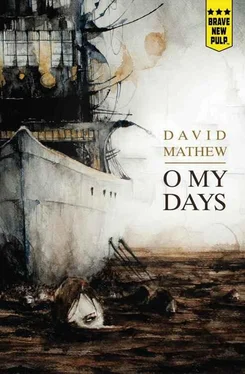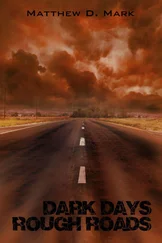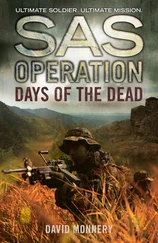Dear William,
It breaks my heart that you don’t want to see me until you get out, and I have no choice but to respect your wishes—but I wish I could respect your reasons too. Then again, how can I respect reasons when none are offered? I have stuck by you through thick and thicker. You have hurt me more than one boy has ever hurt his mother, I think. You should know this. Not because I want to make you feel bad, although I probably will, and I’ll probably regret sending this letter as soon as I’ve put it in the pillar box; but because I want to make you feel good as well. Are you confused? I am. I suppose what I mean is this: if my staying away helps you in some small fashion then a mother’s love for her offspring compels me to act in the way you wish, as stinging to my heart as it is. I know you’re a good boy, William, deep down—and I know that one day you’ll want to come back to me and to the sisters who love you. I don’t know when—I wish I did—but I am confident that you are working your way through some sort of crisis. If my absence is a torch through that darkness then at least I’m still of use. That’s the positive statement I can make about my own state of mind. Forgive me if it sounds cold. There is not a lot of heat in my heart right now. You doused it when you called me and told me to stay away. If I am as you say, a reminder of all the things you haven’t got anymore, then pardon me for not stabbing someone in the arm. I can’t be part of your world, son, because I don’t understand it. I tried my best for you. I don’t know where I went wrong. I didn’t go wrong anywhere, you’ll say—you’ve said it before. But William, I did. I did go wrong with you. Because you were never the same after your father left, when you were tiny. Who else can I blame but myself? And don’t tell me not to blame anyone—every action is a result that has someone to blame, like it or lump it. Julie was frightened by your most recent—and it seems, final—letter. She asked me if she was reading something in code. She asked me if there was something she was missing between the lines. She couldn’t believe that you could be so uncaring towards her and Patrice, and frankly, son, neither can I, but I told her—all you can do is wait for him to come round. You will come round, won’t you? Please don’t tell us you’re abandoning us. I know you think Julie let you down but surely your daughter hasn’t. She’s an innocent in all of this. Don’t leave her, son. It’s not fair on you or her.
Seventy-two hours have elapsed. I couldn’t continue right there and then: I was crying. I’ve been crying for three solid days. Again, I don’t want to make you guilty, frustrated, sad or inadequate in any way; but I don’t want you to feel mean and powerful either. I am not only crying for you—I’m crying for the fragility of things. One phone call—one single, five-minute phone call and you have knocked over the house of cards I’ve been building on our behalf since you were sent down. That’s all it took. Which means, let’s be honest, it was never entirely secure in the first place. If I want you to feel anything, feel love. Feel love for Patrice, feel love for your mother, and feel love for the mother of your child. She has the right to a life. And if your letter set her free in one way to explore her own decisions, it was so empty of the right things to say that it’s built her a new type of prison—Category A—one with a crèche. Your daughter is in the next cell along, and she hasn’t even learned how to breathe properly. Picture that. I hope it does some good, however harsh I have made it sound. Julie can’t help loving who she loves any better than Patrice can and will. Or any better than I can. And I do love you, Willy. I suppose all of that—lecture over—is a kind of preamble to something I wanted very much to talk about, especially if this is going to be our last correspondence—hopefully, though, only our last for a while. There is one more thing to say. I suppose this is a sort of introduction. Yesterday, for the first time, I met Bailey. Or rather, I met a man named Bailey as Bailey. I have of course met him before; so have you. But he had a different name then, and it was a long time ago. The truth is, William, even when I was picking Patrice up one time and Julie sat me down and said she had a new man in her life, I was glad. I’m sorry, but I was. A child needs a father figure as well, and I thought—well, I thought it fit nicely, Bailey showing up when her chips were down. Offering help and a strong arm. But I didn’t meet him, and why should the name have meant anything? I’ve never met anyone called Bailey. I supported Julie’s decision, knowing it would hurt you. You were angry when he and Julie emptied your savings account. Naturally you were. I’m too long in the tooth, I think—and this game has lasted for too many years—for me to feel anything but dread at the thought of asking you were you got £85,000 from at your age. So I won’t. I don’t want to know. But I want to tell you this. He didn’t steal it from you, Willy. Don’t ask me how he and Julie drained your account, but they did, and Julie was telling the truth: Bailey was using the capital as investment. I had it all back yesterday—a cheque with my name on it, for me to look after it for you. He returned every penny, Bailey did. But I hardly even noticed the cheque when he brought it to the front door. It was like, do you remember when you were a boy? You loved your chocolate. But you didn’t eat it in a normal sort of way. Remember? You used to take the bar from the wrapper and put the wrapper in the bin. Then you’d start eating it from the middle—a great big bite, severing the two halves from each other. Then you nibbled at each of the remaining pieces—one bite here, one bite there. It was a bit like that, or it seems that way now. Shock was the only thing calling me when I saw Bailey’s face, but something had taken a bite out of my time. Crunch! The last two decades, munched away. Only a before and after left Bye-bye! I didn’t even recognise him at first. If you take something out of context, it’s difficult to see it for what it is. And I hadn’t even thought about your father—not properly—for ten or twelve years. Yet here he was, on the landing outside the flat, pressing the doorbell that doesn’t work and then using his knuckles to rap on the wood. He is thinner and takes up less space in real life than he does in my uncommon thoughts of him. Withered. Is that the word? His face had all but caved in on itself and he sucked on a set of false teeth for the few minutes he was with me. Yet no time had passed, it seemed—not once I’d quickly got used to his new appearance. Can I describe the emotions, other than the shock I mentioned above? I don’t think I can. I thought of the time he left us, which led to that trouble I got myself—and us—into; my blood thinned. Then I thought of how he used to make me laugh; my heart leaped up. What else could I do? I used sarcasm.
‘Did you get lost?’ I asked him. ‘Or was the shop a long way away?’
‘Hello, Sylvia,’ he said. ‘Good to see you again. I have something.’
‘Yeah—a nerve,’ I said. ‘You have a big fucking nerve.’
Pardon my French, Willy, but I was stunned, distressed, elated, I don’t know what else. Here he was, on our doorstep, not carrying a bag—that was one good thing, at least he didn’t expect to be invited to stay—but pulling from the back pocket of his jeans a piece of paper. As it turned out, a cheque; but I wasn’t finished dishing out the recriminations yet. I’d been storing them for a long time, as you can imagine; providing a piece of paper wasn’t about to dampen embers inside me that suddenly had been fanned into flames.
‘Where you been?’
Читать дальше












